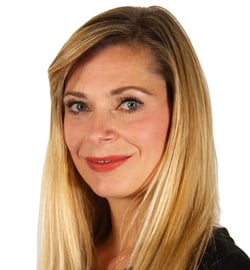Cerebral Palsy Claims
- Medical Negligence
- No Win, No Fee
- Success Stories
- Was My Medical Treatment Negligent?
- Misdiagnosis and Delayed Diagnosis
- Cancer Misdiagnosis
- Birth Injuries
- Birth Injury Claim - Mother and Baby
- Medical Negligence For A Child
- Ectopic Pregnancies
- Brain Injuries
- Subarachnoid Haemorrhage Compensation Claim Solicitors
- Surgery Compensation
- Appendicitis Misdiagnosis
- Cauda Equina Syndrome
- Kidney Failure Misdiagnosis
- Bladder Injury
- Gallbladder and Bile Duct Claims
- Sepsis Compensation Claims
- GP Negligence Claims
- Cerebral Palsy Claims
- Medical Negligence Calculator
- Medical Negligence FAQs
Cerebral Palsy Compensation Claim Solicitors
Discovering that your child has cerebral palsy is traumatic. You want answers: what caused your child’s condition? What went wrong during pregnancy or labour? What can be done to help your child over the long term?
Our specialist medical negligence solicitors can help you to get answers and secure the best medical treatment and support for your child. All compensation claims are No Win No Fee so there is no risk to you or your family.
Can We Claim Compensation For What Happened To Our Child?
You can claim compensation for medical negligence if your child’s cerebral palsy was caused by failings or delays on the part of the treating midwives, doctors or other clinicians during pregnancy or childbirth.
Compensation would fund the lifelong cost of private medical treatment, equipment and medical expenses – as well as a lump sum to reflect the seriousness of your child’s injury.
Importantly, taking legal action would also encourage the hospital, doctors and midwives involved to review and update their policies – so another family does not have to go through what you are going through.
What is Cerebral Palsy?
Cerebral palsy (CP), is a type of brain injury that causes problems with muscle development, movement and posture. There are four main types of CP. They affect each child differently and with varying degrees, depending on the severity of the brain injury:
- Spastic CP – the most common type of the condition, where the muscles contract or ‘spasm’. This can make walking difficult and can cause significant problems with coordination. This condition can be painful and requires extensive physiotherapy.
- Athetoid CP – a less common type, also known as dyskinetic CP; the muscles fluctuate between stiffness and floppiness, causing problems with appetite, movement, eye function and balance.
- Ataxic CP – the least common type of CP, causing involuntary shaking and difficulty speaking.
- Mixed CP – a combination of the above types of CP, depending on which parts of the brain are affected.
Unfortunately there is no cure for cerebral palsy. But with support and therapy children can learn to manage their condition to their maximum ability and live a happy life.
What Causes Cerebral Palsy?
In most cases it is difficult for doctors to pinpoint the exact cause and timing of a child’s brain injury.
Complications with development in the womb or genetics may have a role to play in your baby suffering from CP. The most common cause is lack of oxygen to the brain either during pregnancy or – more likely – at birth. This is known medically as hypoxia.
It is our job as clinical negligence solicitors to determine whether this was caused by failures on the part of your treating midwives and doctors.
How Do I Know If I Have A Claim?
You may have a claim if you believe that your baby’s brain injury could and should have been avoided at birth (had treatment been carried out to a competent standard by your treating midwife or doctor).
In order to bring a clinical negligence claim you will need to prove that the doctor or midwife breached their duty of care owed to your child:
- The treatment fell below the required standard (either by act or by failing to do something) as judged by a responsible body of midwives or obstetricians in similar circumstances. In short, the treatment provided was outside the realms of any acceptable practice in that medical field.
- That this treatment directly caused (or materially contributed to) the development of your baby’s brain injury. As such, your child has suffered an avoidable injury for which he or she should be awarded compensation.
Examples of medical negligence include:
- failure to identify any problems with your baby during pregnancy and classify you as high risk, including growth of the baby and maternal risk factors such as high blood pressure (pre-eclampsia) and/or diabetes
- delay in recognising that your baby was in distress during pregnancy and/or labour, delay in arranging for urgent delivery, either naturally or by Caesarean Section
- failure to adequately monitor your baby’s heartbeat and recognise any abnormalities
- failure to diagnose and treat infection in either the mother or baby
- delay in diagnosis and treatment of any complications with the baby immediately following birth, including breathing problems or jaundice.
Any of these delays or failures may have resulted in a lack of oxygen to your baby’s brain, causing cerebral palsy. The length of the delay is likely to impact of the severity of the brain damage.
We will obtain evidence from independent medical experts to help you determine what mistakes were made; whether these mistakes were negligent and whether your child has suffered cerebral palsy as a result.
What Is The Claims Process?
Here is a brief overview of the claims process:
- A parent or guardian is required to pursue the claim on behalf of the child. They are known as the litigation friend.
- We will obtain full copies of your pregnancy and labour records, together with copies of your child’s medical records. We will then review the records and assess whether there is sufficient evidence of negligence.
- If there is sufficient evidence of negligence, we will then instruct independent medical experts to consider the medical records. They would provide opinion on whether your child received negligent treatment, causing brain injury (CP). This is a complex area and can take some time to investigate.
- If the independent medical experts’ reports are supportive we will submit a claim to the hospital trust involved. They will have the chance to respond formally and either admit or deny fault.
- We will then assess (usually with the help of various additional experts and a barrister) the nature and extent of your child’s injuries and their individual care, equipment and support requirements.
- If the hospital admits fault, we will request interim payments throughout the case to pay for private treatment (if preferred).
Your child is unique and we will work closely with you, providing a friendly and approachable service so that we get the best treatment and support for your child over the long term.
Many claims are settled out of court. But if the hospital trust denies blame (or its settlement offer is too low) we can issue court proceedings on your child’s behalf. This is nothing to worry about and does not necessarily mean the case will go to trial. Even at this stage the parties are actively encouraged to settle the claim out of court.
In the event of a successful action the settlement money is paid into a trust managed by a parent, guardian or carer. We can help you to invest and manage your child’s compensation if needed.
How Long Will The Claim Take?
These claims can continue for many years while your child grows because we need to determine the full extent of injury, loss and care needs for the rest of their life.
If liability is proven, we will seek interim payments from the defendant as the case proceeds. These will fund treatment for your child as the claim progresses.
We will make the process as stress-free for you as possible. We will be with you at all stages to explain what is happening and to provide reassurance. Our experts provide a friendly and personal service and are always on hand to answer any questions you may have.
How Much Compensation Will My Child Receive?
Compensation can run into millions of pounds. Damages usually fall into two categories:
- General Damages
A lump sum to compensate your child for their pain, suffering and loss of amenity. The value of the award will depend on the level of disability and severity of the injury. This will depend on medical evidence from experts in various fields.
- Special Damages
Special damages are awarded for all associated past and future financial losses, medical expenses, care, assistance, equipment and treatment costs.
Special damages can include past and future loss of earnings, house adaptations, mobility aids, rehabilitation, physiotherapy, occupational therapy, speech therapy, special education needs, respite care for parents, parental loss of earnings and any other associated loss.
Claims for special damages can be very high. They are calculated carefully with the help of experts, a barrister and one of our specialist solicitors.
Should I Make A Claim? Will This Affect My Child’s NHS Treatment?
Doctors and midwives usually work very hard to try and ensure that all babies are born healthily. Any mistakes made due to negligence or incompetence are usually as a result of carelessness rather than malice.
But if a professional standard has been breached – with devastating consequences – then it is right that you should be compensated to try and put your child, as far as possible, in the position that they should have been had the negligence not occurred.
This is difficult in cerebral palsy cases but private treatment and rehabilitation goes a long way in improving the outlook for most children with this type of injury.
Claims are usually brought against the hospital trust where the medical professional(s) concerned worked at the time of the medical error(s).
It is very unlikely that the claim will be brought against your treating midwives and doctors personally (unless you paid privately for this treatment).
Making a claim should not stop your child from getting NHS treatment.
How Long Do I Have To Claim?
In most cases you have until their 21st birthday to make a claim. If your child is aged under 18 you can claim on their behalf.
Under the law, there is no deadline to bring a claim if the injured person lacks the mental capacity to bring a case themselves.
Do I Have To Pay To Make A Claim?
Our CP claims are funded by way of a No Win, No Fee agreement and After the Event (ATE) insurance. This means that you will not have to pay anything upfront towards solicitors’ fees, experts’ fees, defendants’ fees or any other legal expenses as the case proceeds.
If your claim succeeds then our legal fees and expenses will be paid by your opponent. There will be a deduction of a maximum of 25% from compensation towards legal fees (known as the ‘Success Fee’), which is not payable by your opponent. This is payable only if you win.
If the claim is unsuccessful then you will NOT be liable for any legal fees. We write off the work that we have done and the ATE insurers will pay any legal expenses (such as the experts’ fees).
We can assure you that you will NOT have to pay anything if your claim is unsuccessful.
Get Expert Help
.png)
For David Simpson, Partner and Head of the Medical Negligence Department:
“It is so refreshing dealing with a firm of such honesty and integrity. I would certainly have no hesitation in recommending Coles Miller to my friends and family.”.png)
For Lydia Barnett, Partner:
“After undergoing surgery I was left infertile. I had my initial consultation with Lydia in which she made me feel completely at ease. She understood the physical and psychological implications of my claim. These types of claims can take a long time and I was concerned it would have a big impact on my life. Lydia has always been professional, honest and thoughtful and contacted me only when required. She always got back to me quickly when I have had questions. I cannot recommend Lydia and Coles Miller enough.”


.png?width=250&name=David%20Simpson%20(1).png)


.webp?width=250&name=Gen%20Clarke%20(2).webp)
